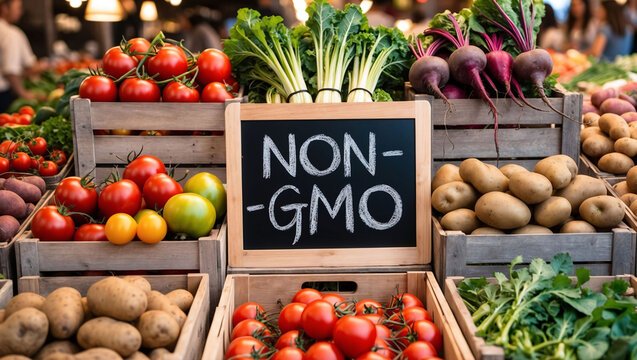In today’s increasingly health-conscious world, consumers are becoming more aware of what goes into their food. One of the most significant concerns is the use of Genetically Modified Organisms (GMOs), which has sparked a global conversation about food safety, environmental sustainability, and personal health.
Understanding GMOs: What They Are and Why They’re Controversial
Genetically Modified Organisms (GMOs) are living organisms whose genetic material has been artificially manipulated through genetic engineering. While proponents argue that GMOs can increase crop yields and resistance to pests, many consumers and scientists have raised serious concerns about their potential long-term health and environmental impacts.
The controversy surrounding GMOs stems from several key issues:
- Potential health risks associated with consuming genetically modified foods
- Environmental concerns about cross-pollination and ecosystem disruption
- Lack of long-term scientific studies on the effects of GMO consumption
- Ethical questions about genetic manipulation of food sources
The Rise of Non-GMO Products: A Consumer-Driven Movement
In response to these concerns, a growing number of companies are committing to producing non-GMO products. According to recent consumer surveys, approximately 70% of consumers prefer non-GMO food options, driving significant market changes across multiple industries.
Benefits of Choosing Non-GMO Products
Opting for non-GMO products offers several compelling advantages:
- Improved Health Transparency: Non-GMO products provide clearer information about ingredient origins
- Environmental Sustainability: Many non-GMO farming practices promote ecological balance
- Nutritional Integrity: Some studies suggest non-GMO foods may have more consistent nutritional profiles
- Support for Sustainable Agriculture: Choosing non-GMO supports farmers using traditional, environmentally friendly cultivation methods
Leading Companies Committed to Non-GMO Products
Several prominent companies have taken strong stances against GMOs across various industries:
Food and Beverage Sector
- Whole Foods Market: Committed to comprehensive GMO labeling and reduction
- Amy’s Kitchen: Produces entirely organic and non-GMO processed foods
- Annie’s Homegrown: Specializes in organic and non-GMO snacks and meals
Personal Care and Cosmetics
- Burt’s Bees: Uses natural, non-GMO ingredients in personal care products
- Seventh Generation: Committed to transparent, non-GMO cleaning and personal care products
How to Identify Non-GMO Products
Consumers can identify non-GMO products through several key methods:
- Look for Non-GMO Project Verified labels
- Check for USDA Organic certification, which prohibits GMO ingredients
- Research brands’ commitment to non-GMO practices
- Use smartphone apps designed to help identify non-GMO products
The Future of Non-GMO Products
The non-GMO movement is more than a passing trend. Market projections indicate continued growth, with consumers increasingly demanding transparency and natural food options. As awareness increases and more companies adopt non-GMO practices, we can expect further innovation and expansion in this sector.
By choosing non-GMO products, consumers are not just making a personal health choice, but participating in a broader movement towards more sustainable, transparent, and ethical food production.





